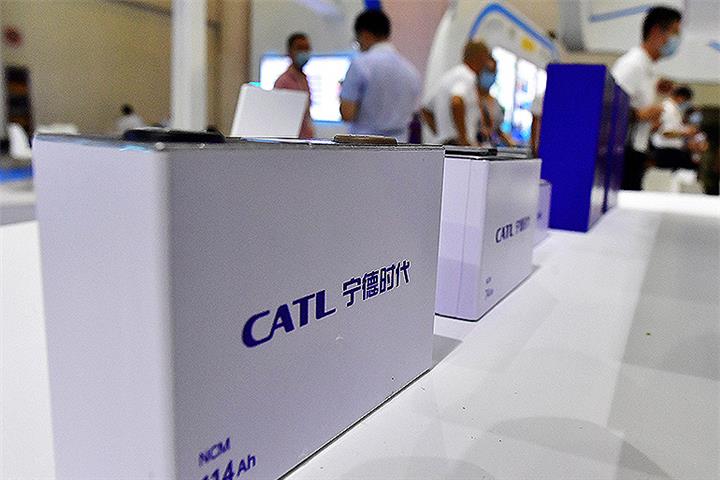 CATL Begins China Rollout of EV Battery Swap Service Evogo
CATL Begins China Rollout of EV Battery Swap Service Evogo(Yicai Global) Jan. 19 -- Chinese electric-vehicle battery giant Contemporary Amperex Technology has launched its first battery swap service Evogo.
Contemporary Amperex Energy Service Technology will initially trial the service in 10 Chinese cities for one vehicle model in FAW Group’s Bestune marquee, Chen Weifeng, general manager of the CATL unit, said at Evogo’s online launch event yesterday.
CATL is the latest Chinese company to launch a battery swap service following others from EV startup Nio, major utility State Power Investment Corporation, and energy project developer GCL Energy Technology.
EV battery swapping enables car owners to quickly change a depleted power pack for a fully charged one at a swapping station, saving time and money, since a large part of an electric car’s cost is in the battery.
CAES developed ‘Choco-SEB,’ a swapping electric block resembling a chocolate bar that can be used in the passenger and commercial vehicles of different models and brands, Chen noted. One block can last for about 200 kilometers, but drivers going on long-distance trips can rent more than one, he added.
Evogo’s swap stations will only cover an area of three parking spaces, Chen said. Customers will be able to use the app, which can interconnect the driver, vehicle, and station, to change the battery block, he said, adding that it only takes about a minute to change.
While commercial vehicles and taxis have unified specifications, passenger cars have different batteries, limiting the development of the battery swapping market, Wang Chi, a research and development engineer at an automaker, told Yicai Global.
Swapping can ease pressure on the power grid and even play a role in energy storage, Wang noted, adding that on-demand rental can boost the usage ratio of batteries while reducing the cost of EVs.
But battery swapping has not been generally taken up by the auto industry. Swap stations do not have a clear profit model and frequent swaps are likely to cause safety hazards. “Frequently plugging and unplugging battery packs may lead to safety loopholes in battery ports,” a senior manager for an independent carmaker told Yicai Global.
Moreover, new technologies will further cut the charging time for EVs, eliminating the speed advantage of battery swap, the person added, noting that such models will increase input costs for automakers, making it harder for the service to be widely available.
Editors: Tang Shihua, Futura Costaglione